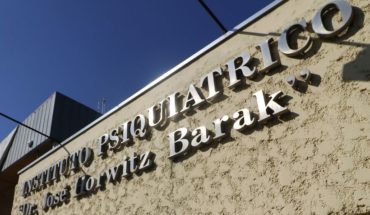
The declaration of the Spokesperson of the Peoples in favor of six democratic guarantees for the realization of the Constitutional Convention has provoked the general overreaction of the old political elite and those who are close to their ideals: from Insulza to Mariana Aylwin, through Minister Delgado and the president Desbordes, all question the ‘democratic legitimacy’ of 34 elected and elected constituents proposing the the need to review and discuss the rules to be worked on.
The fact is that the sectors that have largely controlled politics for the last 30 years do not want to recognise that the elected Convention effectively represents the ‘constituent power’. This first statement is central to the drafting of a Constitution that does have the legitimacy that the 1980 Constitution did not have, since it has been drawn up since the imposition of a dictatorship. It was precisely the ‘constituent power’ that the Military Junta literally arrogated to itself (Decree 128 of 1973) to make use of the Executive and Legislative powers – suspending Congress – and to legally justify what it had already achieved through systematic state violence: its permanence in power.
It is within the framework of the recovery of that constituent power that the historic door is now open to the return of sovereignty to the peoples as well. In this regard, we First Nations know the harsh consequences of being stripped and excluded from that sovereignty. That is why, when the old policy calls for not questioning the rules that the parties left agreed in the agreement of November 15, what lies behind it is the attempt to maintain the status quo, one where democracy is guarded and where colonialism over the first nations remains the norm.
That the constitutional rules of operation – including the two-thirds rule – should be reviewed and discussed is reasonable and democratic. The argument that these rules were voted on and passed alongside the plebiscite is conservative, and has already been used by the right to block necessary reforms to the Convention. A few months ago, Senators Kast and Ebensperger used this argument over and over again to refuse to allow the historic reservation of seats for native peoples to be 24 in addition to the conventional 155. The rules amended that time, while allowing for the election of first-nation constituents, did so at the high cost of extremely unequal participation and the complete exclusion of people of African descent.
An open dialogue and debate on the two-thirds rule seems even more necessary, when it comes to establishing a legitimate Magna Carta that does not carry the anti-democratic legacy of the Constitution of ’80. Chilean memory should not forget that guzman’s constitution and the Ortuzar commission dictated in the Upper House the presence of 12 appointed senators out of a total of 38[1]: by the two-thirds rule, the representatives of the dictatorship kept virtually intact their power of veto in the first Senate of the transition. For this reason, the Mapuche people and their organizations, such as Ad Mapu, were already suing in 1983.[2] “participation in the drafting of a new political Constitution”, which would guarantee the rights of peoples. It took the country 15 years of democracy (1990-2005) to complete the appointment of senators. Viewed that way, even the history of representative institutions in Chile shows that previous norms can and have in fact been changed for the better.
In this way of rethinking the frameworks of constitutional dialogue, indigenous knowledge will be a significant contribution, especially when we recognize the dense Mapuche diplomatic and political history on the basis of the old parliaments. And in that sense, if there is one thing that knowledge of azmapu – the mapuche people’s own norms of coexistence and relationship – can contribute to the Convention, it is precisely to understand that the rules are made for the life and balance of the community and not so that the community is tied to the rules. Kisugvnewvn we say, the right to give ourselves decision.
We do not know Parliament’s reasons for pre-agreeing on a central part of the Convention’s rules: there was no public debate on them but a midnight meeting behind closed doors. All the citizens saw the next day was the photo of a palace room full of political faces: social movements and citizens now deserve the transparency that there was not then.
That’s why it’s clave both build public agreements on voting quorums and on forms of social participation in the constituent assembly. So far the rules express a single moment of voice for it; an exit plebiscite. But it is not enough, in what other ways will communities and multiple organizations have the serious opportunity to bring their reflections to the conventional ones on an equal footing?
There is no doubt that pre-existing peoples, regions and nations have succeeded in mobilizing the facts towards a refoundational moment. At the height of this historic milestone, both the call to debate guarantees and regulations and the call to recognise the constituent power that the peoples will express in the Convention is profoundly democratic. First Nations, as constituent Elisa Loncon says, “we know that we have been marginalized from participation and decision-making for centuries” and, therefore, we can openly point out to the people of Chile that their best path is broad conversation, without exclusions and without prior censorship.
In this new beginning for all peoples and territories, dialogue and debate with transparency is like the pampas for a xawvn, and neither the pampas, nor the hill, nor the forest, can be put padlocks and doors.
[1] In the 1989 reform, there were 44 senators in total.
[2] Ad Mapu. (April 1983). Resolutions of the third day of the Association of small farmers and artisans Ad Mapu.
Martín Llancaman holds a degree and a Master’s degree (c) in Philosophy, Plurinational Spokesperson
The content of this opinion column is the sole responsibility of its author, and does not necessarily reflect the editorial line or position of El Mostrador.





